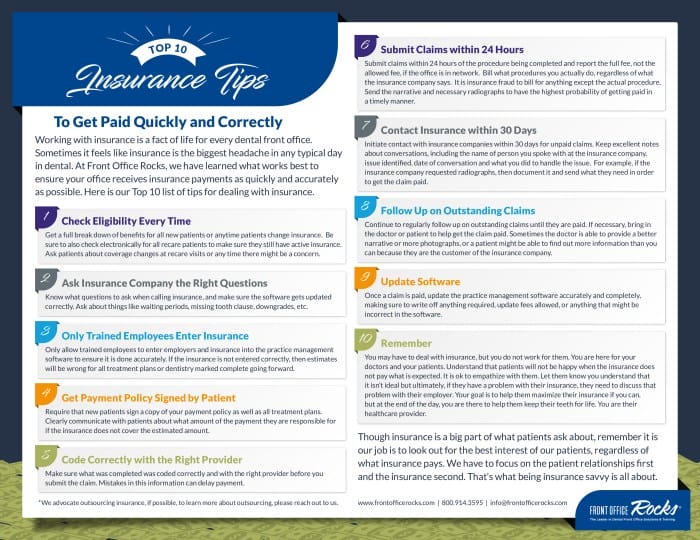In the realm of personal finance, insurance plays a pivotal role in safeguarding our assets and providing peace of mind. However, dealing with insurance companies can often be a daunting task, leaving many feeling overwhelmed and uncertain. This comprehensive guide offers a wealth of practical tips and strategies to help you navigate the complexities of insurance policies, file claims effectively, and negotiate favorable settlements.
Whether you’re a seasoned policyholder or a first-time insurance buyer, this guide will empower you to interact with insurance companies with confidence and expertise.
From deciphering complex insurance jargon to understanding the nuances of claim filing, this guide covers a wide range of topics essential for navigating the insurance landscape. We’ll delve into the art of negotiating settlements, explore strategies for preventing insurance fraud, and provide insights into building a positive relationship with your insurance company.
Additionally, we’ll discuss the importance of staying informed about industry trends and regulations to ensure you’re always making informed decisions about your insurance coverage.
Understanding Insurance Policies
Understanding insurance policies is paramount in ensuring that you are fully aware of the coverage, terms, and conditions of your insurance contract. This knowledge empowers you to make informed decisions, file claims efficiently, and avoid potential disputes with insurance companies.
Deciphering Complex Insurance Jargon and Clauses
Insurance policies are often filled with complex jargon and clauses that can be difficult to comprehend. To ensure clarity, take the following steps:
- Read the policy carefully: Dedicate time to thoroughly read and understand each section of your policy, including the fine print.
- Use a dictionary or glossary: If you encounter unfamiliar terms or phrases, refer to a dictionary or glossary provided by your insurance company or available online.
- Seek professional assistance: If you find it challenging to understand certain provisions, consider consulting an insurance agent, broker, or attorney for clarification.
Importance of Reviewing Policy Documents Regularly
Insurance policies are subject to changes over time due to updates in regulations, changes in the insurance company’s terms and conditions, or modifications in your coverage needs. Therefore, it is essential to:
- Review your policy annually: Make it a habit to review your policy at least once a year, or more frequently if there have been significant changes in your life circumstances or insurance needs.
- Be aware of policy renewal dates: Keep track of your policy renewal dates to ensure timely payment of premiums and avoid coverage gaps.
- Contact your insurance company for updates: If you have questions or concerns regarding policy changes, reach out to your insurance company for clarification and guidance.
Filing Claims Effectively
Filing an insurance claim can be a daunting task, but by following the right steps and communicating effectively, you can increase your chances of a successful outcome.
To file a claim effectively, you need to gather all the relevant documentation, such as your insurance policy, the police report (if applicable), and any receipts or estimates for repairs or replacements. It’s also important to take photos of the damage and keep a record of all your conversations with the insurance company.
Communicating with Insurance Adjusters
When you communicate with the insurance adjuster, be clear, concise, and polite. Avoid using technical jargon or slang, and make sure to answer their questions honestly and completely. It’s also important to be patient and persistent, as the claims process can take some time.
Dealing with Claim Denials

Insurance claims can be denied for various reasons, leading to financial stress and uncertainty. Understanding the reasons behind claim denials and the strategies to address them is crucial for policyholders.
Claim denials can arise due to several factors, including:
- Policy Exclusions: Certain events or circumstances may be explicitly excluded from coverage under the insurance policy.
- Misrepresentation or Fraud: Providing inaccurate or misleading information during the application process or making false claims can result in denial.
- Untimely Filing: Failing to submit a claim within the specified timeframe as Artikeld in the policy.
- Lack of Supporting Documentation: Insufficient or incomplete documentation to support the claim, such as medical records, receipts, or police reports.
- Policy Limits: The claim amount may exceed the coverage limits specified in the insurance policy.
Appealing Denied Claims
If a claim is denied, policyholders have the right to appeal the decision. The process typically involves:
- Reviewing the Denial Letter: Carefully examine the denial letter to understand the specific reasons for the denial.
- Gathering Supporting Evidence: Collect additional documentation or evidence to strengthen the claim, such as medical records, estimates, or witness statements.
- Filing an Appeal: Submit a written appeal to the insurance company within the specified timeframe, outlining the reasons why the denial should be overturned.
- Escalating the Issue: If the appeal is unsuccessful, consider escalating the issue to higher levels within the insurance company or contacting state insurance regulators.
Role of State Insurance Regulators
State insurance regulators play a crucial role in resolving disputes between policyholders and insurance companies. They can:
- Provide Guidance: Offer information and guidance to policyholders on the claims process and their rights.
- Review Denials: Investigate denied claims and determine if the insurance company acted fairly and in accordance with the policy.
- Mediate Disputes: Facilitate discussions between policyholders and insurance companies to reach a mutually acceptable resolution.
- Take Disciplinary Action: In cases of misconduct or violations, state insurance regulators can take disciplinary action against insurance companies.
Negotiating Settlements

Insurance settlements are financial agreements between an insurance company and a policyholder to resolve a claim without going through the formal legal process. They offer numerous benefits, including quicker access to funds, avoiding the uncertainties and costs of litigation, and preserving relationships between the parties involved.
Strategies for Negotiating Favorable Settlements:
1. Preparation and Knowledge: Thoroughly understand the insurance policy, coverage limits, and relevant laws. Research precedents and industry norms to strengthen your position during negotiations.
2. Open Communication: Foster open and respectful communication with the insurance adjuster. Initiate conversations with empathy and a willingness to compromise, which can lead to more favorable outcomes.
3. Document Everything: Maintain detailed records of all interactions, including phone calls, emails, and meetings. Accurate documentation serves as a valuable tool in case negotiations break down and legal action becomes necessary.
4. Consider Mediation or Arbitration: If direct negotiations stall, consider alternative dispute resolution methods such as mediation or arbitration. These processes can help facilitate a compromise that is acceptable to both parties.
5. Consult an Expert: In complex cases, consider seeking advice from an attorney or other expert with experience in insurance settlements. Their insights can provide valuable guidance and strengthen your negotiating position.
Assessing the Fairness of Settlement Offers:
1. Review Coverage Limits: Ensure that the settlement offer aligns with the limits of your insurance coverage. If the offer falls short, you may be entitled to additional compensation.
2. Consider Legal Fees: Factor in the potential legal fees and expenses that you would incur if the claim goes to court. Weigh these costs against the settlement offer to determine if it represents a favorable deal.
3. Evaluate Long-Term Impact: Think about the long-term impact of the settlement. Consider factors such as future medical expenses, lost wages, and pain and suffering. Ensure that the settlement offer adequately addresses these aspects.
4. Seek Independent Advice: Consult with an attorney or financial advisor to obtain an objective assessment of the settlement offer. Their expertise can help you make an informed decision that aligns with your best interests.
Preventing Insurance Fraud
Insurance fraud is a serious problem that can lead to increased premiums and reduced coverage for everyone. It is important to be aware of the common types of insurance fraud and how to avoid them.
Some of the most common types of insurance fraud include:
- Exaggerating or inventing claims: This can include claiming more damage than actually occurred, or claiming that an item was stolen when it was actually lost.
- Filing multiple claims for the same incident: This is known as “double-dipping,” and it is illegal.
- Staging accidents: This can involve deliberately causing an accident or exaggerating the extent of an accident.
- Misrepresenting information on an insurance application: This can include lying about your driving record, your health history, or the value of your property.
Consequences of Committing Insurance Fraud
The consequences of committing insurance fraud can be severe. You could face:
- Criminal charges: Insurance fraud is a crime, and you could be charged with a felony or misdemeanor.
- Fines: You could be fined thousands of dollars.
- Jail time: You could be sentenced to jail for up to several years.
- Loss of your insurance coverage: Your insurance company may cancel your policy if they find out that you have committed fraud.
- Difficulty getting insurance in the future: If you are convicted of insurance fraud, you may have difficulty getting insurance in the future.
Reporting Suspected Fraud
If you suspect that someone is committing insurance fraud, you should report it to the insurance company and the authorities. You can do this by calling the National Insurance Crime Bureau (NICB) at 1-800-TEL-NICB (1-800-835-6422) or by visiting their website at www.nicb.org.
Maintaining Good Credit

Maintaining a good credit history is crucial for securing lower insurance premiums and enjoying various financial benefits. Insurance companies often consider credit scores as an indicator of an individual’s responsibility and ability to manage financial obligations. A higher credit score can lead to lower insurance rates, while a poor credit history may result in higher premiums.
Tips for Maintaining a Good Credit History
- Pay Bills on Time: Paying bills consistently and on time is one of the most significant factors influencing credit scores. Late payments can negatively impact your credit history and lower your score.
- Keep Credit Utilization Low: Credit utilization refers to the amount of credit you are using compared to your total credit limit. Keeping your credit utilization low indicates to lenders that you are not overextending yourself and are managing your debt responsibly.
- Manage Debt Wisely: Having too much debt can negatively affect your credit score. Consider consolidating debts into a single loan or paying off high-interest debts first to reduce your overall debt burden.
- Avoid Opening Too Many Credit Accounts in a Short Period: Applying for multiple credit cards or loans in a short period can lead to inquiries on your credit report, which can temporarily lower your credit score.
- Monitor Your Credit Report Regularly: Regularly reviewing your credit report allows you to identify any errors or suspicious activity that may impact your score. You can obtain a free copy of your credit report from each of the three major credit bureaus once a year.
Strategies for Improving Credit Scores Over Time
- Pay Down Existing Debts: Reducing your overall debt can significantly improve your credit score. Prioritize paying off high-interest debts first, as they can be more costly and negatively impact your score.
- Make Extra Payments: If possible, make extra payments on your debts beyond the minimum required amount. This can help you pay down your debt faster and improve your credit score.
- Become an Authorized User on Someone Else’s Credit Card: If you have a friend or family member with good credit, ask them if you can become an authorized user on their credit card. This can help you build a credit history if you do not have one or improve your score if it is low.
- Dispute Errors on Your Credit Report: If you find any errors or inaccurate information on your credit report, you can dispute them with the credit bureau. Correcting errors can help improve your credit score.
Comparing Insurance Quotes

Navigating the insurance landscape can be daunting, especially when faced with a multitude of options. To ensure you secure the best coverage at a competitive price, comparing insurance quotes from multiple providers is a crucial step.
Obtaining multiple quotes allows you to:
- Identify Cost Savings: Comparing quotes reveals variations in premiums among insurers, enabling you to potentially save money by choosing a more affordable option.
- Evaluate Coverage Options: Different insurers offer varying levels of coverage, deductibles, and policy limits. Comparing quotes helps you assess the specific coverage options available and select the one that best suits your needs.
- Understand Policy Terms and Conditions: Each insurance policy comes with its own set of terms and conditions. By comparing quotes, you can carefully review and understand these terms, ensuring you are fully aware of your rights and responsibilities as a policyholder.
Evaluating Insurance Quotes
When comparing insurance quotes, consider the following factors:
- Policy Coverage: Assess the coverage limits, deductibles, and exclusions of each policy. Ensure the policy meets your specific needs and provides adequate protection.
- Premium Cost: While cost is an important factor, avoid solely focusing on the lowest premium. Consider the overall value of the policy, including coverage and customer service.
- Reputation and Financial Stability: Research the reputation and financial stability of the insurance companies. Choose insurers with a strong track record of paying claims and providing reliable customer service.
- Customer Service: Consider the insurer’s customer service record, including their responsiveness, accessibility, and willingness to assist policyholders.
Managing Insurance Costs

Keeping insurance costs manageable while ensuring adequate coverage is a common concern for many. Understanding the factors that influence premiums, choosing the right deductible level, and adopting cost-saving strategies can help you strike a balance between affordability and protection.
Insurance Premiums and Deductibles
Insurance premiums are the amounts you pay to your insurance company for coverage. Deductibles are the amounts you pay out of pocket before your insurance coverage kicks in. Higher deductibles generally result in lower premiums, and vice versa. It’s important to find a deductible level that balances affordability with your risk tolerance and financial situation.
Choosing the Right Deductible Level
When choosing a deductible level, consider the following factors:
- Your budget: Can you afford to pay a higher deductible if it means a lower premium?
- Your risk tolerance: Are you comfortable with the risk of having to pay more out of pocket if you need to file a claim?
- Your claims history: If you have a history of filing claims, a higher deductible may be more cost-effective.
Cost-Saving Strategies
In addition to choosing the right deductible level, there are several strategies you can adopt to reduce your insurance costs without compromising coverage:
- Shop around for quotes: Don’t just stick with your current insurance company. Get quotes from multiple providers to compare rates and coverage options.
- Consider bundling your policies: Bundling your home and auto insurance policies with the same company can often lead to discounts.
- Take advantage of discounts: Many insurance companies offer discounts for things like having a good driving record, installing security systems, or being a loyal customer.
- Increase your credit score: A higher credit score can lead to lower insurance rates for some types of insurance, such as auto and homeowners insurance.
Building a Relationship with Your Insurance Company

Establishing a positive relationship with your insurance company is crucial for effective communication, smooth claims processing, and access to benefits. Building rapport and trust can lead to a mutually beneficial partnership.
To cultivate a strong relationship with your insurance company:
Communicating Effectively
- Be Proactive: Reach out to your insurance provider regularly, even if you don’t have an immediate need. Introduce yourself and ask questions about your policy, coverage options, and any upcoming changes.
- Be Clear and Concise: When communicating with insurance representatives, use clear and straightforward language. Avoid jargon or technical terms that they might not understand. If you have questions, ask for clarification.
- Be Polite and Respectful: Treat insurance representatives with courtesy and respect. Remember that they are individuals trying to help you. Being polite and respectful can go a long way in building a positive relationship.
- Be Patient: Understand that insurance processes can sometimes be slow and complex. Be patient and persistent when dealing with claims or inquiries. Remember that insurance companies have their own procedures and regulations that they must follow.
Leveraging Your Relationship
- Utilize Your Agent: If you have an insurance agent, use them as a resource. They can provide guidance on policy options, help you file claims, and advocate for you if necessary.
- Be an Advocate for Yourself: Don’t be afraid to ask questions, challenge decisions, or request additional information. Remember that you are the customer, and you have the right to understand your policy and the services you are paying for.
- Be a Loyal Customer: If you have a positive experience with your insurance company, consider staying with them for future policies. Loyalty can often lead to better rates, discounts, and personalized service.
Staying Informed about Insurance Trends

Keeping abreast of the evolving insurance landscape is crucial for both policyholders and insurance professionals. Staying informed about the latest trends and regulations can empower individuals to make informed decisions, navigate the insurance landscape effectively, and maximize the value of their insurance policies.explanatory
paragraphUnderstanding industry trends can provide insights into emerging risks, evolving coverage options, and changes in regulatory requirements. This knowledge can help policyholders select appropriate coverage, avoid potential pitfalls, and proactively manage their insurance needs.
Resources for Staying Informed
- Industry Publications: Subscribe to reputable insurance magazines, newsletters, and online resources that provide up-to-date news, analysis, and expert insights on the insurance industry.
- Seminars and Webinars: Attend industry seminars, conferences, and webinars hosted by insurance companies, brokers, and professional organizations. These events offer opportunities to learn from experts, network with peers, and stay informed about the latest developments.
- Regulatory Updates: Monitor regulatory changes and updates issued by government agencies and regulatory bodies. These changes can impact insurance policies, coverage options, and claims procedures.
- Insurance Company Websites: Visit the websites of your insurance company and other reputable insurers. Many companies provide resources, FAQs, and educational materials to help policyholders understand their coverage and make informed decisions.
Benefits of Staying Informed
- Enhanced Understanding: Staying informed helps policyholders better understand their insurance policies, coverage options, and the claims process. This knowledge empowers them to make informed decisions and avoid potential pitfalls.
- Proactive Risk Management: By understanding emerging risks and trends, policyholders can take proactive steps to mitigate risks and protect their assets.
- Maximizing Coverage: Staying informed about new coverage options and changes in policy terms can help policyholders ensure that their insurance policies adequately address their evolving needs.
- Effective Claims Handling: Knowledge of industry trends and regulations can assist policyholders in effectively navigating the claims process, ensuring timely and fair settlements.
Final Summary

Remember, knowledge is power, and when it comes to dealing with insurance companies, the more informed you are, the better equipped you’ll be to protect your interests and secure the coverage you deserve. Embrace the strategies Artikeld in this guide, and you’ll find yourself navigating the insurance maze with confidence, ensuring that you receive the protection and benefits you’re entitled to.
Helpful Answers
Q: What are some common reasons for insurance claims to be denied?
A: Insurance claims can be denied for various reasons, including failure to provide sufficient documentation, policy exclusions, late filing, and suspected fraud.
Q: How can I improve my credit score to secure lower insurance rates?
A: Maintaining a good credit history is crucial for securing lower insurance premiums. Pay your bills on time, keep your credit utilization low, and work towards reducing any outstanding debts.
Q: What are some tips for negotiating favorable settlements with insurance companies?
A: Research comparable settlements, gather evidence to support your claim, and be prepared to negotiate. Consider hiring an attorney if the settlement offer seems unfair or inadequate.



